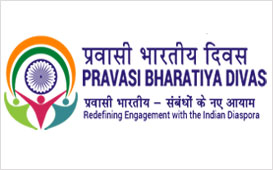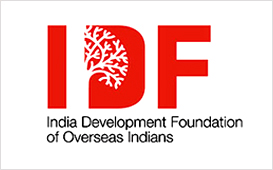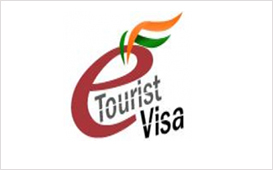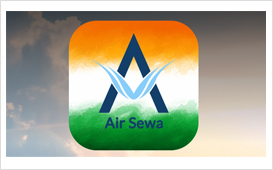Curacao used to be the capital of the Netherlands Antilles till 10 October, 2010, when the Netherlands Antilles was dissolved and Curacao was given internal autonomy, like Aruba in 1986, within the Kingdom of the Netherlands. It is situated 56 kilometers off the northern coast of Venezuela. It has a population of 142,180 (2010) and an area of 444 square kilometers.
The Queen of the Kingdom of the Netherlands is the Head of State and is represented in Curacao by a Governor appointed by her for a six-year term. Executive power is in the hands of a Council of Ministers headed by an elected Prime Minister. The 21-member Parliament (Staten) is elected every four years on the basis of a multi-party system. Curacao’s judicial system, which has been derived mainly from the Dutch, operates independently of the legislature and the executive. Jurisdiction, including appeal, lies with the Common Court of Justice of Aruba and the Supreme Court of Justice in the Netherlands. Mr. Frits Goedgedrag is the Governor and Mr. Gerrit Schotte is the Prime Minister since 10 October 2010 for a four year term.
Curacao is strategically located. It has good relations with most of its neighbours. The population is mixed - the island is visibly multi-ethnic and multi-cultural: there is an Afro-Caribbean majority, and also sizeable minorities of Dutch, Latin Americans, Indians, Chinese, French and Arabs living on the island. Many faiths are also represented.
Curacao has two Free Trade Zones, one in the city and one close to the airport, where imports can be freely made and re-exported without any duty except for a turnover tax of 2%. The vast majority of the business in the Free Trade Zone is owned by people of Indian origin but others such as Arabs and Chinese are also taking over firms in the zone. The Indian businessmen there deal mostly with electronic items, jewellery, household items, garments, etc. Some of them import part of their merchandise from India and appear keen to expand and diversify their imports from India. But their main concern regarding imports from India relate to inadequate shipping lines, the long time (45-60 days) for ships to reach from India to Curacao in comparison to ships coming from China, and the higher costs as compared to the transit points in Panama. The route is however still viable as bulk consignments can be freight forwarded to the Curacao free trade zone, disaggregated, and then sent in smaller consignments to various destinations in the region. This is far more economical than sending half empty containers to individual countries by individual traders.
Bilateral Relations
Relations with India have been cordial. The first high level visit from India to Curacao in June 2007 when Shri Vayalar Ravi, Hon’ble Minister of Overseas Indian Affairs, paid a brief visit. During his stay, he met Mrs. Emily S. de Jongh-Elhage, Prime Minister of Netherlands Antilles, and discussed various issues including work-permits and visa problems, as also the need to enhance bilateral economic and commercial interaction. There is some trade between India and Curacao, mainly through imports by the Indian-origin community on the island who sell Indian goods on the island as well as re-export them within the region. But bilateral trade is extremely low. Indian companies, particularly in the pharma and IT sector, can explore the possibility of joint ventures, particularly in the free trade zone of Curacao.
There were several reasons for Indians and Indian companies to come to Curacao - geographical location in the Caribbean Sea outside the hurricane belt, proximity to South, Central and North America and easy connectivity with Europe, and business friendly policies to help Indian companies position themselves on this Island and expand in this region. The two Free Zones offer excellent opportunities for import and export with only 2% tax on the profit.
During her recent visit to Curacao (25-27 March, 2012), Ambassador Ms. Smita Purushottam called on Governor Mr. Frits Goedgedrag and Prime Minister Mr. Gerrit Schotte. Both of them were very appreciative of the role being played by members of the Indian community in Curacao. Both the leaders appeared keen to benefit from Indian expertise in IT & Software, Health and Pharmaceuticals sectors, among others.
PM Schotte has a vision for the development of Curacao which encompasses eco-friendly development, construction of wind farms, waste management facilities, and a space programme. Curacao has plans to construct a spaceport or a launching base for rockets carrying tourists into space.
There are about 1200 PIOs/NRIs in Curacao, most of who are in the retail business related to jewellery, electronics, garments etc. The Embassy, in collaboration with ICCR, tries to send cultural troupes to the islands periodically. The last such ICCR-sponsored troupe came in May 2009 and performed to packed houses in Curacao. The Prime Minister of Netherlands Antilles and the Governor of Curacao had attended the performance. Given that Curacao is a top tourist destination with a prosperous Indian/PIO community, there is a suggestion that Indian Film Awards could be hosted on this Island which could not only bring Indian tourists to this Islands but may given rise to new business opportunities. The Indian Community in Curacao has constructed an impressive Hindu temple for community worship which was inaugurated in April 2004. Separately, the community has constructed a crematorium which has been utilized by locals as well as members of the Indian community from Curacao, St. Maarten and Aruba.
Mr. Manohar Sawilani, a leading businessman and respected member of Indian community, is India’s Honorary Consul to Curacao and Bonaire and is based in Curacao.
Consular matters dominate the links between Embassy of India and the people of Curacao mainly because of Indian and PIO communities residing there. The main issues of concern of the Indian community, many of them Dutch passport-holders, have largely been resolved. These include the legalization of birth certificates etc. which is now done through simple procedures by the Dutch Embassy in Delhi. Members of the Indian and PIO communities in Curacao contact the Embassy for various passport, visa and consular services which are provided expeditiously as per established procedures.























